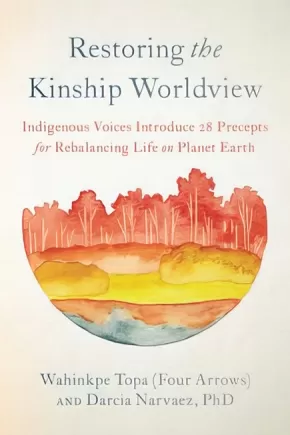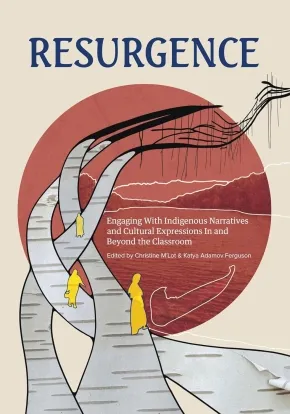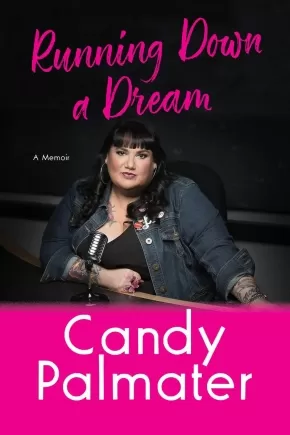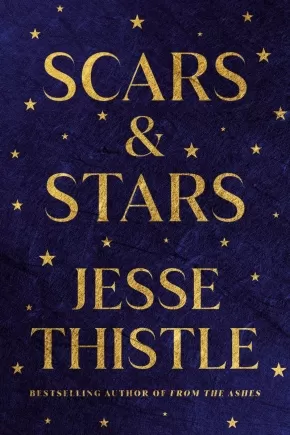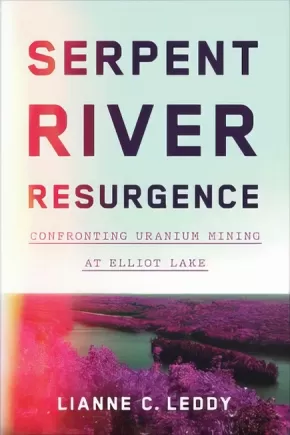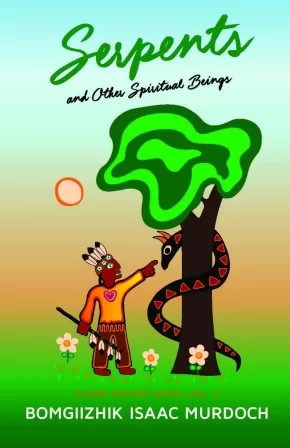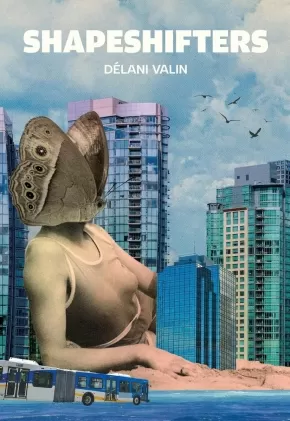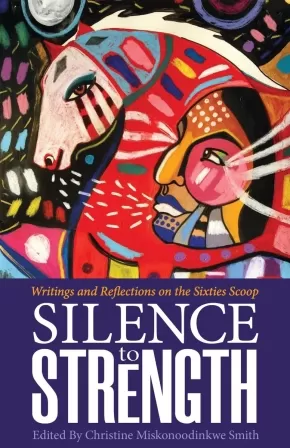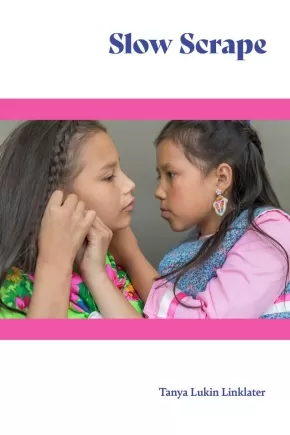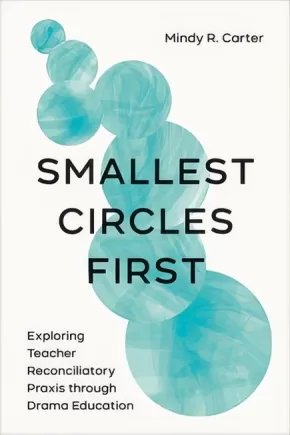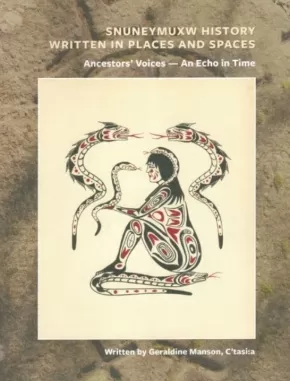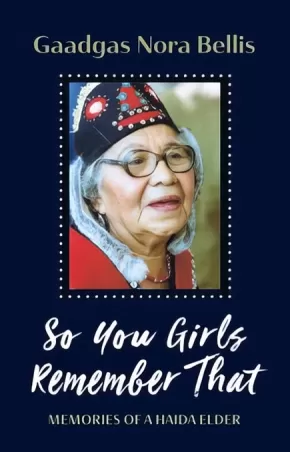
Indigenous Studies
406
-
420
of
1030 Results;
Sort By
Go To
of 69
Restoring the Kinship Worldview: Indigenous Voices Introduce 28 Precepts for Rebalancing Life on Planet Earth
$28.95
Format:
Paperback
Text Content Territories:
Indigenous American; Native American; Indigenous;
Reading Level: N/A
ISBN / Barcode: 9781623176426
Synopsis:
Synopsis:
Selected speeches from Indigenous leaders around the world--necessary wisdom for our times, nourishment for our collective, and a path away from extinction toward a sustainable, interconnected future.
Indigenous worldviews, and the knowledge they confer, are critical for human survival and the wellbeing of future generations. Editors Wahinkpe Topa (Four Arrows) and Darcia Narvaez present 28 powerful excerpted passages from Indigenous leaders, including Mourning Dove, Robin Wall Kimmerer, Winona LaDuke, and Xiuhtezcatl Martinez. Accompanied by the editors’ own analyses, each chapter reflects the wisdom of Indigenous worldview precepts like:
• Egalitarian rule versus hierarchical governance
• A fearless trust in the universe, instead of a fear-based culture
• The life-sustaining role of ceremony
• Emphasizing generosity and the greater good instead of pursuing selfish goals and for personal gain
• The laws of nature as the highest rules for living
The editors emphasize our deep need to move away from the dominant Western paradigm--one that dictates we live without strong social purpose, fails to honor the earth as sacred, leads with the head while ignoring the heart, and places individual “rights” over collective responsibility. Restoring the Kinship Worldview is rooted in an Indigenous vision and strong social purpose that sees all life forms as sacred and sentient--that honors the wisdom of the heart, and grants equal standing to rights and responsibilities.
Inviting readers into a world-sense that expands beyond perceiving and conceiving to experiencing and being, Restoring the Kinship Worldview is a salve for our times, a nourishment for our collective, and a holistic orientation that will lead us away from extinction toward an integrated, sustainable future.
Reviews
“Humans have a particular ecological niche, a role as the custodial species of this earth. We must return our species to this niche within the next decade, or perish. This book is a perfect place to start—the foundation is good relations, making kin both human and nonhuman—and here we have story from a gathering of some of the finest Indigenous thinkers on the planet. Four Arrows and Darcia Narvaez have a particular way of bringing the right people together for such purposes.” —TYSON YUNKAPORTA, author of Sand Talk, senior research fellow at Deacon University, woodcarver, and poet
“Mahalo Four Arrows and Darcia Narvaez for this collection, this eloquence and grace through time so we can recognize and honor the common sense and purpose of continuity. All of it is needed now. We are all meant to wake up together.” —MANULANI ALULI MEYER, director of Indigenous education, University of Hawai‘i–West O‘ahu
“Darcia Narvaez and Four Arrows have gathered an inspiring pastiche of wise Native American voices woven together by their own insightful and heartfelt dialogues to gift us with an invaluable bundle of tenets and templates for the urgent project of decolonizing and rewilding our minds and communities.” —BILL PLOTKIN, PhD, author of Soulcraft, Wild Mind, and The Journey of Soul Initiation
Additional Information
336 pages | 6.00" x 8.95" | Paperback
Resurgence: Engaging With Indigenous Narratives and Cultural Expressions In and Beyond the Classroom
$32.00
Editors:
Format:
Paperback
Text Content Territories:
Indigenous Canadian;
ISBN / Barcode: 9781774920008
Synopsis:
Synopsis:
A thoughtful guide to critical engagement with Indigenous literatures, perspectives, and teaching methods as well as ideas and action steps for bringing them into the classroom.
Resurgence is an inspiring collection of contemporary Indigenous poetry, art, and narratives that guides teachers in bridging existing K–12 curricula with Indigenous voices and pedagogies. Walk with us along the footbridge which seeks to:
- connect peoples and places
- link truth and reconciliation as ongoing processes
- symbolize the risk and urgency of this work for both Indigenous and settler educators
- engage tensions
- highlight the importance of balance, both of ideas and within ourselves
Through critical engagement with the texts, experienced educators Christine M’Lot and Katya Adamov Ferguson support readers in connecting with Indigenous narratives and perspectives, bringing Indigenous works in their classrooms, and creating more equitable and sustainable teaching practices.
In this resource, you will find
- diverse Indigenous voices, perspectives, and art forms from all across Turtle Island
- valuable concepts and methods that can be applied to the classroom and beyond
- practical action steps and resources for educators, parents, librarians, and administrators
Use this book as a springboard for your own learning journey or as a lively prompt for dialogue within your professional learning community.
Reviews
"Over the past several years, calls have come from across Canada for the inclusion of Indigenous worldviews and knowledge in all levels of education in the country. Enter...Resurgence." ––Windspeaker
Educator & Series Information
For use with K-12 curricula.
Contributors include KC Adams, Charlene Bearhead, Wilson Bearhead, Lisa Boivin, Nicola Campbell, Sara Florence Davidson, David A. Robertson, and Christina Lavalley Ruddy, and more!
Subjects / Themes: Education; Professional Development; Social Science; Indigenous Studies; Language Arts Disciplines; Study Teaching
This book is part of The Footbridge Series. This series aims to bridge curricular outcomes with Indigenous-centered content and perspectives from across Turtle Island. Like a footbridge, this series is intended to provide a path between Indigenous worldviews and the classroom, engaging differences, including tensions, and highlighting the importance of balance, all while helping teachers integrate Indigenous perspectives into multiple disciplines within the K-12 education system.
Table of Contents
Introduction
About This Book
About The Footbridge Series
Part 1: Resistance
Beyond Being Silenced by Sara Florence Davidson
- Connections
Poetry as Cultural Expression by Rita Bouvier
- Connections
T’seka Reflection by Lucy Hemphill
- Connections
Poetry by Louise Bernice Halfe
- Connections
Part 2: Resilience
Mental Health by David A. Robertson
- Connections
Writing as a Therapeutic Medium by Wanda John-Kehewin
- Connections
Birch Bark Technology by KC Adams
- Connections
Images and Health by Lisa Boivin
- Connections
Part 3: Restoring
Stories are Resurgence by Wilson Bearhead and Charlene Bearhead
- Connections
Why am I not on Star Trek? by Sonya Ballantyne
- Connections
Indigenous Spaces by Reanna Merasty
- Connections
Games as Resurgence by Elizabeth LaPensée
- Connections
Part 4: Reconnecting
Poems by Nicola I. Campbell
- Connections
Paths of Tradition by Russell Wallace
- Connections
Let the Children Play by Victoria McIntosh
- Connections
Ethnomathematics and Beading by Christina Ruddy
- Connections
The Contributors
Additional Resources
Index
Additional Information
224 pages | 7.00" x 10.00" | Paperback
Running Down a Dream: A Memoir
$32.99
Format:
Hardcover
Text Content Territories:
Indigenous Canadian; First Nations; Mi'kmaq;
Reading Level: N/A
ISBN / Barcode: 9781443455091
Synopsis:
Synopsis:
A powerful, often funny, always inspiring memoir from a beloved comedian, professional orator, actor, entertainer, gone all too soon.
Candy Palmater loved to connect with people. She lived for the stage, her effervescent presence on television and radio ignited and inspired audiences, touching them with her warm, often spicy humour as well as her positive message about love and kindness. And she always believed that it is never too late to pursue our dreams and that we should never allow others to negatively influence our life’s desires.
Candy described herself as a queer Mi’kmaw lawyer-turned-comic raised by bikers in rural New Brunswick and on the surface, she met with enormous success – on leaving government and the practice of law, she started a career as a stand-up comedian, which led to starring in five successful seasons of her own national TV show, hosting many radio shows and co-guest hosting CTV’s The Social, and landing a recurring role on a hot new sitcom in her fifties. But she is the first to tell you she made all kinds of mistakes and experienced all kinds of failure along the way. Running Down a Dream is Candy’s story, in her own words, of the highs, the lows, the moments of doubt, the turning points when she listened to her gut and tuned out all the people saying no. It’s also a tribute to her family and the love that always bolstered her, despite their own hard times. She shares her stories to inspire us to embrace our failures and to believe in ourselves. And most importantly, Running Down a Dream is a call to love ourselves for who we are.
The world lost Candy in late 2021, and yet she left us with this gift -- a memoir and a message that will inspire us for years to come.
Additional Information
304 pages | 6.00" x 9.00" | Hardcover
Scars and Stars: Poems
$25.00
Format:
Hardcover
Text Content Territories:
Indigenous Canadian; First Nations; Cree (Nehiyawak); Métis;
Reading Level: N/A
ISBN / Barcode: 9780771003509
Synopsis:
Synopsis:
A beautiful and moving collection of poems and stories from the author of the #1 bestselling memoir From the Ashes.
Fans of Jesse Thistle’s extraordinary debut From the Ashes have already had the pleasure of reading his poetry, which is sprinkled throughout this bestselling memoir. In Scars and Stars, he digs deeper into the poetic form, which is especially close to his heart.
Charting his own history, the stories of people from his past, the burning intensity of new and unexpected love, the complex legacies of family and community, and the beauty of parenthood, this collection is a profound mediation that expands his engagement with the ideas and experiences that have shaped his body of work thus far.
Throughout the collection, prose pieces complement the poems, and to bring readers into Jesse’s life with greater intimacy than ever before. The result is an unforgettable furthering of his singular story, one that is sure to delight his many readers, but also serve as a perfect entry point for those new to the work of one of our most thrilling and honest writers.
Additional Information
184 pages | 5.00" x 7.50" | Hardcover
Serpent River Resurgence: Confronting Uranium Mining at Elliot Lake
$29.95
Format:
Paperback
Text Content Territories:
Indigenous Canadian; First Nations; Anishinaabeg; Ojibway; Serpent River First Nation;
Reading Level: N/A
ISBN / Barcode: 9781442614376
Synopsis:
Synopsis:
Serpent River Resurgence tells the story of how the Serpent River Anishinaabek confronted the persistent forces of settler colonialism and the effects of uranium mining at Elliot Lake, Ontario. Drawing on extensive archival sources, oral histories, and newspaper articles, Lianne C. Leddy examines the environmental and political power relationships that affected her homeland in the Cold War period.
Focusing on Indigenous-settler relations, the environmental and health consequences of the uranium industry, and the importance of traditional uses of land and what happens when they are compromised, Serpent River Resurgence explores how settler colonialism and Anishinaabe resistance remained potent forces in Indigenous communities throughout the second half of the twentieth century.
Reviews
"Lianne C. Leddy’s book Serpent River Resurgence is a welcome addition to the conversation on mining and development in and around the Elliot Lake area. This is a must-read for any person wanting to engage in reconciliation and to understand that First Nations people have been on the frontlines of resource development and have suffered the consequences. This is a timely message for all in the era of reconciliation, and a reminder that First Nations communities have not always been properly consulted or made aware of the consequences, and have been at the whim of the Federal government. We must be reminded of our past relationships, and how we got to this point, and we need to hear the truth. This book brings to light some of the truths; it is a welcome addition to the conversation on reconciliation."— Chief Brent (Nodini’inini) Bissaillion, Chief of the Serpent River First Nation
"For anyone seeking to understand twentieth-century colonialism in Canada, this book offers a compelling on-the-ground story of resource extraction in Anishinaabek homelands. Lianne C. Leddy has done a superb job of tying together uranium demands for American weapons of war, mining boomtown development, and the rich history and culture of the Serpent River people. It is an antidote to settler narratives of progress and a vision of resilient people, land, and future."— Kim Anderson, Canada Research Chair in Indigenous Relationships and Associate Professor of Family Relations and Applied Nutrition, University of Guelph
"Serpent River Resurgence is a powerful community-based history of resilience and reclamation. Filling a critical gap in Indigenous history, Lianne C. Leddy demonstrates the impact of the global dynamics of settler colonialism during the Cold War while centring an impressive story of Indigenous resurgence."— Allan Downey, Nak'azdli Whut’en First Nation and Associate Professor of History and Indigenous Studies, McMaster University
"Of bicultural parentage, Leddy situates herself within this story as a member of both sides – Anishinaabe and Canadian. As an Indigenous environmental historian, Leddy explicates the enduring structures of settler colonialism, demonstrating that they are still in force today. To identify those structures, she adroitly deploys the words of her elders, countering their historic exclusion by inserting storytelling into her analysis, while critically approaching and analyzing bureaucratic reports and newspaper articles. A welcome and timely piece of scholarship."— Alan Ojiig Corbiere, Bne Doodem, Canada Research Chair, Indigenous History of North America, York University
"A brilliant analysis of uranium mining in Ontario which centres the lived experiences of Indigenous communities, particularly the Serpent River First Nation. Leddy explores deep-rooted Anishinaabe connections to a particular place, situating these conflicts within global processes of Cold War colonialism. Leddy argues that stories have been the foundation of Indigenous resurgence, and the stories she tells are compelling indeed."— Nancy Langston, Distinguished Professor of Environmental History, Michigan Technological University
Educator Information
Subjects: History / History of Science & Technology; History / Indigenous History; Indigenous Studies / Indigenous History; History / Canadian History; Environmental Studies
Table of Contents
Introduction
1. The Serpent River Anishinaabek before 1950
2. Carving a “Jewel in the Wilderness”: The Establishment of Elliot Lake
3. “It took all the trees”: The Cutler Acid Plant and Its Toxic Legacy
4. “We weren’t supposed to use that water at all!”: Uranium Mining and the
Serpent River
5. “Oooh yes, we all went up to Elliot to protest”: Resilience and Resistance at
Serpent River First Nation
Conclusion
Notes
Bibliography
Additional Information
248 pages | 6.00" x 9.00" | Paperback
Serpents and Other Spiritual Beings
$25.00
Format:
Paperback
Text Content Territories:
Indigenous Canadian; First Nations; Anishinaabeg; Ojibway;
Reading Level: N/A
ISBN / Barcode: 9781928120353
Synopsis:
Synopsis:
Serpents and Other Spiritual Beings is the second book in a series by renowned Ojibwe storyteller Bomgiizhik Isaac Murdoch, following on The Trail of Nenaboozhoo and Other Creation Stories (2019). Serpents and Other Spiritual Beings is a collection of traditional Ojibwe/Anishinaabe stories transliterated directly from Murdoch's oral storytelling. Part history, legend, and mythology, these are stories of tradition, magic and transformation, morality and object lessons, involving powerful spirit-beings in serpent form. The stories appear in both English and Anishinaabemowin, with translations by Patricia BigGeorge. Murdoch's traditional-style Ojibwe artwork provides beautiful illustrations throughout.
Reviews
"'When the Thunderbirds and Serpents fight, they feed off each other, you know great medicine gets cast across the land. We get our life from that.' So writes storyteller Isaac Murdoch as he shares his Elders' stories about tunnels beneath the earth, rich laws, philosophies, teachings, power from up there, down there, and all around us, until we too hear the thunders as they bring us into the world of wahkotowin, all our relations. How privileged and blessed we are to be able to read the Ahtyokaywina of our people."--Maria Campbell, author of Halfbreed
"Gather around, for here are oral stories transcribed so they retain the flavour of a narrative spoken aloud, and translated into Anishinaabemowin; perfect for language-learners. I love the way these stories infuse the spirit world into an every-day context, these are not dusty old legends, but a living way of seeing the world around us in the here and now."--Nathan Niigan Noodin Adler, author of Ghost Lake
Educator & Series Information
Dual-Language: English and Anishinaabemowin.
Anishinaabemowin translation by Patricia BigGeorge, who is an Anishinaabemowin speaker and translator.
This book is Vol. 2 in the Ojibwe History Series.
Additional Information
100 pages | 5.50" x 8.50" | 20 illustrations | Paperback
Seven Aunts
$30.99
Format:
Paperback
Text Content Territories:
Indigenous American; Native American; Anishinaabeg;
Reading Level: N/A
ISBN / Barcode: 9781517912857
Synopsis:
Synopsis:
Part memoir, part cultural history, these memories of seven aunts holding home and family together tell a crucial, often overlooked story of women of the twentieth century.
They were German and English, Anishinaabe and French, born in the north woods and Midwestern farm country. They moved again and again, and they fought for each other when men turned mean, when money ran out, when babies—and there were so many—added more trouble but even more love. These are the aunties: Faye, who lived in California, and Lila, who lived just down the street; Doreen, who took on the bullies taunting her “mixed-blood” brothers and sisters; Gloria, who raised six children (no thanks to all of her “stupid husbands”); Betty, who left a marriage of indenture to a misogynistic southerner to find love and acceptance with a Norwegian logger; and Carol and Diane, who broke the warped molds of their own upbringing.
From the fabric of these women’s lives, Staci Lola Drouillard stitches a colorful quilt, its brightly patterned pieces as different as her aunties, yet alike in their warmth and spirit and resilience, their persistence in speaking for their generation. Seven Aunts is an inspired patchwork of memoir and reminiscence, poetry, testimony, love letters, and family lore.
In this multifaceted, unconventional portrait, Drouillard summons ways of life largely lost to history, even as the possibilities created by these women live on. Unfolding against a personal view of the settler invasion of the Midwest by men who farmed and logged, fished and hunted and mined, it reveals the true heart and soul of that history: the lives of the women who held together family, home, and community—women who defied expectations and overwhelming odds to make a place in the world for the next generation.
Reviews
"Seven Aunts is a celebration of the women in Staci Lola Drouillard’s family who struggled to escape a daunting legacy with unsung courage, humor, and unbreakable love for family. Far more than a family history, Seven Aunts is an honor song that reveals the everyday heroism of these women’s lives."—Diane Wilson, author of The Seed Keeper
"Seven Aunts gives us a unique and privileged insight to the intimate lives and history of a blended Indigenous and immigrant family in northern Minnesota. Staci Lola Drouillard has written with honesty and truth about ‘the treacherous beauty of life’ in a family rich in characters, in love and loss, all with great humor. Anaïs Nin wrote that reaching deep into the personal becomes universal. Seven Aunts is exactly that. It speaks to us of the universal love of family, the reality of historic social challenges, and the strength of the unbreakable bonds of knowing."—Hazel Belvo
Additional Information
320 pages | 5.50" x 8.50" | 7 b&w illustrations | Paperback
Shapeshifters
$19.95
Format:
Paperback
Text Content Territories:
Indigenous Canadian; Métis;
ISBN / Barcode: 9780889714281
Synopsis:
Synopsis:
In Shapeshifters, Délani Valin explores the cost of finding the perfect mask. Through a lens of urban Métis experience and neurodivergence, Valin takes on a series of personas as an act of empathy as resistance. Some personas are capitalist mascots like the Starbucks siren, Barbie and the Michelin Man, who confide the hopes and frustrations that lay hidden behind their relentless public enthusiasm. Others include psychiatric diagnoses like hypochondria, autism and depression, and unlikely archetypes such as a woman who becomes a land mass by ending the quest to shrink herself. In more confessional poems, the pressure to find relief from otherness often leads to magical thinking: portals, flight, telepathy and incantations all become metaphors for survival. Shapeshifters maps ways in which an individual can attempt to fit into a world that is inhospitable to them, and makes a case to shift the shape of that world.
Additional Information
112 pages | 5.50" x 8.00" | Paperback
Siku: Life on Ice
$29.95
Artists:
Format:
Hardcover
Text Content Territories:
Indigenous Canadian; Inuit;
Reading Level: N/A
ISBN / Barcode: 9781772274455
Synopsis:
Synopsis:
Arctic ice is a daily consideration for people living above the Arctic circle. Ice is key to successful hunts, ease of travel, and the health of wildlife. This book features sweeping landscape photography of Arctic sea ice in all its forms, accompanied by anecdotes from community members across the North. From traditional stories of what lurks under the ice to harrowing tales of hunters on the ice and traditional knowledge about ice safety and conditions, this book presents the beauty, complexity, and unique challenges of living daily in an ever-evolving icy landscape.
Educator Information
Foreword by Sheila Watt-Cloutier
Additional Information
72 pages | 11.00" x 8.00" | Colour photographs | Hardcover
Silence to Strength: Writings and Reflections on the 60s Scoop
$18.00
Editors:
Format:
Paperback
Text Content Territories:
Indigenous Canadian;
Grade Levels: 12; University/College;
ISBN / Barcode: 9781928120339
Synopsis:
Synopsis:
From the 1960s through the 1980s the Canadian Children's Aid Society engaged in a large-scale program of removing First Nations children from their families and communities and adopting them out to non-Indigenous families. This systemic abduction of untold thousands of children came to be known as the Sixties Scoop. The lasting disruption from the loss of family and culture is only now starting to be spoken of publicly, as are stories of strength and survivance.
In Silence to Strength: Writings and Reflections on the 60s Scoop, editor Christine Miskonoodinkwe Smith gathers together contributions from twenty Sixties Scoop survivors from across the territories of Canada. This anthology includes poems, stories and personal essays from contributors such as Alice McKay, D.B. McLeod, David Montgomery, Doreen Parenteau, Tylor Pennock, Terry Swan, Lisa Wilder, and many more. Courageous writings and reflections that prove there is strength in telling a story, and power in ending the silence of the past.
Reviews
"This is an excellent collection and I recommend it to all who are interested in learning the truth about Indigenous Peoples by reading what they have written, not what has been written about them by non-Indigenous writers. The striking cover art is by George Littlechild, also a survivor of the Sixties Scoop." - MariJo Moore
Additional Information
140 pages | 5.50" x 8.50" | Paperback
Slow Scrape
$18.95
Format:
Paperback
Text Content Territories:
Indigenous American; Alaska Native; Alutiiq (Sugpiaq); Indigenous Canadian; First Nations; Cree (Nehiyawak);
Reading Level: n/a
ISBN / Barcode: 9781772015249
Synopsis:
Synopsis:
Slow Scrape enacts a poetics of relation and action to counter the settler colonial violences of erasure, extraction, and dispossession. Drawing on documentary poetics, concrete-based installations, event scores, and other texts, the book cites memory, Cree and Alutiiq languages, and embodiment as modes of relational being and knowing. In the words of Layli Long Soldier, Slow Scrape presents “an expansive and undulating meditation on time, relations, origin, and colonization."
Includes an introduction by Layli Long Soldier as well as a dialogue between Lukin Linklater and editor for the first edition, Michael Nardone.
Additional Information
112 pages | 5.50" x 8.50" | Paperback
Smallest Circles First: Exploring Teacher Reconciliatory Praxis through Drama Education
$36.95
Format:
Paperback
Text Content Territories:
Indigenous Canadian;
ISBN / Barcode: 9781487523831
Synopsis:
Synopsis:
Drawing from studies with pre- and in-service teachers in Quebec, Smallest Circles First looks at how teacher agency engages with the educational calls to action from Canada’s Truth and Reconciliation Commission. Using drama education and theatre, Smallest Circles First explores how the classroom can be used as a liminal educational site to participate in reconciliatory praxis.
Smallest Circles First presents several arts-based educational research examples that illustrate how the arts provide a space for students, teachers, and communities to explore and learn about reconciliation praxis and responsibilities. By implementing arts-based counter-narratives set against settler Canadian history and geography, Smallest Circles First considers the implications of systemic racism, colonization, and political, social, and economic ramifications of governmental policies. Tangible examples from the book showcase how teachers and students can use the arts to learn specifically about their responsibilities in engaging with Canada’s Truth and Reconciliation Commission, in addition to how this work can still meet curricular learning outcomes.
Reviews
"A contribution to the fields of education and performing arts, Smallest Circles First is an excellent example of what can be done and what needs to be done in regards to building a shared future for all Canadians. Readers will feel empathic and identified with these narratives; not just the narratives of the author but also with the narratives of the participants in the research." — Maria del Carmen Rodriguez de France, Assistant Professor of Indigenous Education, University of Victoria
"The research and writing found in Smallest Circles First advances the calls to action in the TRC – in ways that allow space for exploration and in ways that do not insist that there is one ‘true’ way to do the work of reconciliation. This book is as much about hope as it is deep and instructive." — Michele Sorensen, Assistant Professor in the Faculty of Social Work, University of Regina
"Carter’s book provides insightful ways of engaging respectfully and meaningfully with Indigenous topics through drama-based approaches. She describes the work in a way that is thoughtful, ethical, and well grounded. The case studies in Smallest Circles First are diverse and dynamic, and they come together in ways that allow the reader to see the cohesive nature of the book." — George Belliveau, Professor and Head of Language and Literacy Education, University of British Columbia
"Smallest Circles First is a must for any artist or educator, providing research-based evidence of the role theatre can play in healing and reconciliation; her reframing of risk as the grounds for creative rupture is an important corrective to the risk-avoidant perspectives that dominate research and education." — Sheila Christie, Associate Professor of English and Drama, Cape Breton University
Educator Information
Table of Contents
Foreword by Tom Dearhouse
1.Starting with the Smallest Circles First
Teacher Agency, Canada’s Truth and Reconciliation Commission, and the Arts Curriculum
Language, Culture, and Religion in Quebec Education
Are the Arts the Answer?
Vignettes
About This Book
2. Walk a Mile in Someone Else’s Shoes: Situating Theories and Methods
Identity, Subjectivity, and Posthumanism
Arts-Based Educational Research (ABER)
Narrative Inquiry
Vignettes and Constant Comparison for Data Analysis
Making Sense of the Data, Saturation, and Validity
3. We Start Here: Narratives, Vignettes, and Analysis
Narratives
Monologue: I’m Still Canadian, Dad!
Appropriation and Embodiment
Centring Oneself within a Community of Practice
Discussion
4. Weaving Together Understandings across Vignettes
Theme 1: Risk and Learning as Rupture
Theme 2: Belonging
Theme 3: Counter-narratives
5. Full circle
Unfolding’s
Towards an Instructional Model for Belonging and Becoming by Learning through/with Drama
Learning Responsibilities
New Directions: Learning beyond the arts
Coming full Circle
Appendices
Appendix 1: Sing the Brave Song: This Isn’t Over!
Appendix 2: Reconciliation!
Appendix 3: Monologue: I’m Still Canadian, Dad!
Glossary
References
Additional Information
186 pages | 6.00" x 9.00" | Paperback
Snuneymuxw History Written in Places and Spaces: Ancestors' Voices—An Echo in Time
$20.00
Format:
Paperback
Text Content Territories:
Indigenous Canadian; First Nations; Salish; Coast Salish; Snuneymuxw ;
ISBN / Barcode: n/a
Synopsis:
Synopsis:
This book explores the history and meaning behind petroglyphs on Gabriola Island.
From the author: "This booklet is dedicated to the Ancestors, for the legacy they left us, and to our Elders of Elders who continued to pass this knowledge down in the oral tradition."
All proceeds from the sale of this work are donated to youth programs.
So You Girls Remember That: Memories of a Haida Elder
$22.95
Format:
Paperback
Text Content Territories:
Indigenous Canadian; First Nations; Haida;
Grade Levels: 12; University/College;
ISBN / Barcode: 9781550179774
Synopsis:
Synopsis:
Collected wisdoms, reflections and stories from Indigenous Elder Naanii Nora of the Haida Nation.
So You Girls Remember That is an oral history of a Haida Elder, Naanii Nora, who lived from 1902 to 1997. A collaborative effort, this project was initiated and guided by Charlie Bellis and Maureen McNamara and was years in the making. The resulting book, compiled by Jenny Nelson, is a window into Nora’s life and her family—from the young girl singing all day in the canoe, bossing her brothers around or crossing Hecate Strait on her dad’s schooner, to the young woman making her way in the new white settlers’ town up the inlet, with music always a refrain—these are stories of childhood; of people and place, seasons and change; life stages and transitions such as moving and marriage; and Haida songs and meanings.
This book also contains the larger story of Nora’s times, a representation of changing political relationships between Canada and the Haida people and a personal part of the Haida tale.
What ultimately shines through is Nora’s singular and dynamic voice speaking with the wisdom of years. For example, on giving advice she says: “I like to give anybody advice because when you’re young you don’t know nothing on this world. What’s coming; what’s going … You have to remember it’s a steep hill; you’re right on the top. You slide down anytime if you don’t be careful.”
This is a work of great generosity, expressing Nora’s spirit of living—her joy, humour, spirituality and resourcefulness; her love of children, music and social life; her kindness, strong will and creativity; and her spirit that has nurtured a community and endures to this day.
Royalties will be donated to the Carl Hart Legacy Trust through the Haida Gwaii Community Foundation, to support the Rediscovery Camp at T'aalan Stl'ang.
Reviews
"You can tell if someone has ever met Naanii Nora Brown Bellis Yahgulanaas as the mere mention of her name will make them smile." –Michael Nicoll Yahgulanaas, author of Carpe Fin: A Haida Manga
"Reading my Nanny’s stories in So You Girls Remember That, filled me with emotions. It brought me back to Nanny’s strong warm hugs and her cheeky demeanor, memories of her cluttered house and all the time spent with her. As a Haida, and a father, I worry about the rapidly advancing world, where we are now and where we’re heading. Nanny has laid the blueprint for tackling such worries. Her words remind us to always believe in ourselves, and that love of family and community are essential, not only for survival but also for the flourishing of love, laughter and music." –Tyler Hugh Charlie Bellis, played the melodica in grades 6 and 7 at Tahayghen elementary school
Additional Information
240 pages | 5.50" x 8.50" | Paperback
Standing in a River of Time
$19.95
Format:
Paperback
Text Content Territories:
Indigenous Canadian; Métis;
ISBN / Barcode: 9781772013795
Synopsis:
Synopsis:
Standing in a River of Time merges poetry and lyrical memoir on a journey exposing the intergenerational effects of colonization on a Métis family. Kirton does not shy away from hard realities, meeting them head on, but always treating them with respect and the love stemming from a lifetime of spiritual healing and decades of sobriety. This collection unravels painful memories and a mixed-blood woman’s journey towards wholeness. The Ancestors whisper to Kirton throughout, asking her to heal, to bring them home, so that within these stories of redemption and loss the dead walk with us, their presence felt as the story unfurls in unexpected ways. Kirton does not offer false hope, nor does she push us towards answers we are not yet ready for. Instead, she gestures towards the many healing modalities she has explored as she discovers that the path to reconciliation is not only a long and winding road, but also that it begins with those closest to us.
Additional Information
192 pages | 6.00" x 9.00" | Paperback
Sort By
Go To
of 69

